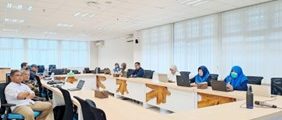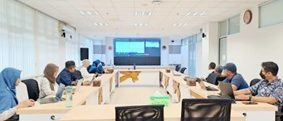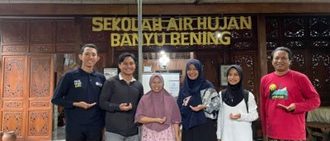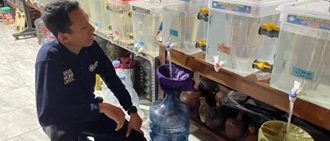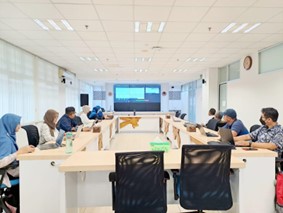
Yogyakarta (08/01), the Population Doctoral Program held a workshop focused on curriculum design, in accordance with directions from the UGM Postgraduate School in response to Ministry of Education and Culture Regulation Number 53 of 2023 on Quality Assurance in Higher Education. This activity took place in the Siti Nurbaya Center Room, Room E KLMB, Faculty of Geography.
This activity, which was attended by lecturers, students, alumni and graduate users, was a collaborative effort to emphasize the importance of education for sustainability which aims to improve the curriculum by integrating global issues into research topics. Participants engaged in discussions on how to integrate sustainability principles into the curriculum, ensuring that future graduates are prepared to face the challenges of a rapidly changing world.
There were several suggestions submitted by participants of this activity, as explained by Dr. Suprapedi (BRIN) who provided suggestions regarding publication requirements, soft skills training included in courses, insertions related to transmigration, and training on tools used in demography.
“Soft skills can be included in the courses offered, namely the hidden curriculum,” said Prof. Dr. Sri Rum Giyarsih, Chief of the Population Doctoral Program, who responded to one of the participants’ suggestions.
This workshop explores the integration of soft skills into a curriculum that recognizes the importance of competency in the professional world. The hidden curriculum concept discussed shows that soft skills training can be inserted into existing courses. This approach aims to produce graduates who are not only knowledgeable in their field but also have the interpersonal skills necessary for effective collaboration.
Apart from that, the alumni who attended actively provided their views regarding the learning curriculum. As stated by Dr. Armansyah, “Publication is one of the graduation requirements, apart from the output being assessed, the process also needs to have a special assessment (assessment indicators). “So, we don’t have to race towards the publication target of Sinta or Scopus so we only use predatory journals, but in terms of the learning and preparation process it is maintained,” he said.
The Population Doctoral Program is taking significant steps towards creating a curriculum that is responsive to global challenges. By encouraging collaboration among lecturers, students, alumni and stakeholders, this program not only improves educational outcomes but also contributes to broader sustainable development goals.
Author: Siti Muyasaroh

